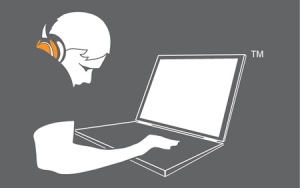More than nine million musicians are trying to connect with more than 200 million music fans, according to some estimates. The huge numbers alone would suggest the odds are in their favor. Yet the channels musicians have traditionally relied upon to get their music discovered, promoted and sold are increasingly irrelevant and as a result, musicians are increasingly on their own, without labels, record stores or radio to help them.
“The artist’s challenge is to convert casual fans into loyal fans, and loyal fans into paying customers,” said Charles Feinn, CEO and co-founder of music technology innovator MixMatchMusic. “Getting your music discovered just isn’t enough. Musicians have to engage and involve casual listeners in order to build deep and lasting connections with them, and to convert them to loyal fans. These connections are what drive sales of the concert tickets, band merchandise and CDs artists need to pay the rent and put gas in the van.”
According to Feinn and many other music industry observers, record labels play a smaller and smaller role in breaking new bands or even promoting signed bands. Record stores are disappearing and radio is less and less of a factor in promoting new music. And it’s hard for a new band to breakthrough amongst the millions of songs in the iTunes Store. It’s also true that music fans have changed, acclimated to the read/write web and the social interaction that comes with it, and looking for the same experience with music and the artists who create it.
“While the business part of the traditional music business is breaking down, music is alive and well and there is more music than ever,” said Feinn. “We’re on a mission to help keep music alive, and we’re doing so by helping artists forge deeper and more meaningful connections with fans.”
Feinn said a growing number of artists are turning to new Internet-based initiatives, such as the remix promotions pioneered by Nine Inch Nails and Radiohead, to help them engage with and connect with music fans.
“Involving fans in the creative process by encouraging them to remix and mash up a new song from the musical building blocks provided by the artist, is catching on as one of the best ways to make the artist – fan connection stronger,” he said.
Feinn said that more than 60 artists have launched remix promotions based on MixMatchMusic’s Remix Wizard, a simple-to-use widget that any fan with a broadband connection can use. Artists including Pepper and Zion I have loaded the building blocks of songs – the guitar, bass, keys, drums and other elements called stems, into customized versions of MixMatchMusic’s widget, and invited fans to remix the stems to create new sounds and songs with them. He said the company’s site has received more than half a million impressions since the beginning of the year, and more than 80 thousand plays of fan-created remixes.
Feinn said the Remix Wizard is a fan-friendly approach to the more complex remix technologies employed by Nine Inch Nails and Radiohead. Bands such as Pepper feature remixes submitted by fans on their sites and MySpace pages, and some artists even promise to incorporate especially imaginative fan-created interpretations of their music in future albums.
Feinn said the Remix Wizard is the first in a series of artist and fan friendly technologies from MixMatchMusic designed to forge even stronger and deeper connections.
“Music has the power to bring people together,” said Feinn. “It’s exciting and also humbling to know we’re playing a small part in making those connections happen, through our technology-based products and services that help musicians convert casual music fans into loyal fans, and loyal fans into paying customers.”




